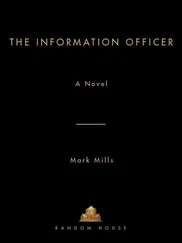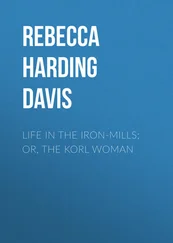Mark Mills - The Savage Garden
Здесь есть возможность читать онлайн «Mark Mills - The Savage Garden» — ознакомительный отрывок электронной книги совершенно бесплатно, а после прочтения отрывка купить полную версию. В некоторых случаях можно слушать аудио, скачать через торрент в формате fb2 и присутствует краткое содержание. Жанр: Старинная литература, на английском языке. Описание произведения, (предисловие) а так же отзывы посетителей доступны на портале библиотеки ЛибКат.
- Название:The Savage Garden
- Автор:
- Жанр:
- Год:неизвестен
- ISBN:нет данных
- Рейтинг книги:4 / 5. Голосов: 1
-
Избранное:Добавить в избранное
- Отзывы:
-
Ваша оценка:
- 80
- 1
- 2
- 3
- 4
- 5
The Savage Garden: краткое содержание, описание и аннотация
Предлагаем к чтению аннотацию, описание, краткое содержание или предисловие (зависит от того, что написал сам автор книги «The Savage Garden»). Если вы не нашли необходимую информацию о книге — напишите в комментариях, мы постараемся отыскать её.
The Savage Garden — читать онлайн ознакомительный отрывок
Ниже представлен текст книги, разбитый по страницам. Система сохранения места последней прочитанной страницы, позволяет с удобством читать онлайн бесплатно книгу «The Savage Garden», без необходимости каждый раз заново искать на чём Вы остановились. Поставьте закладку, и сможете в любой момент перейти на страницу, на которой закончили чтение.
Интервал:
Закладка:
He was still trying to take this on board when Maria entered the library from the drawing room.
"Maria."
"Sir." Why had she taken to calling him "sir"? "Signora Docci wishes to see you."
"Thank you."
He didn't move.
"Is everything all right, sir?"
"Yes."
His mind was still reeling from the discovery, yes, but his sweat- soaked shirt was also glued to the back of the leather chair, and he worried what sound it would make if he got to his feet in her presence.
He was right to have waited till she left. It was a ripping sound, a bit like Velcro.

Signora Docci wasn't in her bed, which threw him at first. She had only ever been in her bed. But now it was empty, neatly made, the white cotton counterpane smoothed flat as ice.
"Out here," came her voice from the loggia.
She was seated in a rattan chair, and she was wearing a navy blue skirt and a white cotton blouse. Her feet were bare and resting on a footstool. Her hair, which she had always worn loose, was drawn back in a ponytail; and in the sunlight flooding the loggia, her face had lost some of its pallor. She looked like a passenger lounging on the deck of an ocean liner—the first-class deck.
"I thought we'd have tea al fresco today," she said matter-of- factly. Unable to keep up the pretense, a slow smile broke across her face. "You should see your expression."
"I'm surprised."
"It's hardly the raising of Lazarus. Anyway, it's your fault." "My fault?"
"Well, not directly. It's the shame of talking to you every day from my bed. It's not dignified."
"You don't have to feel dignified on my account."
"Oh, I don't—it's entirely on my own account." She turned her face into the sun. "It is a long time since I felt the sun on my face." She gestured toward the tea service laid out on the low table. "Do you mind?"
Adam poured the tea, as he always did. She was very particular— milk first, then the tea, then half a spoon of sugar.
"You were running," she said.
"Running?"
"Well, trying to. I saw you from there." She pointed toward the low wall of the loggia.
Instinct told him to keep the discovery to himself. If indeed that's what it was. Maybe he had imposed Dante on the garden, or the garden on Dante. He needed to be sure. And that would take time.
"I thought I was on to something. I was wrong."
She wasn't going to let him get away with it that easily. "What?"
"Zephyr," he replied, still formulating his response.
"Zephyr?"
"The west wind."
"Yes, I know."
"Well, in the myth he's Flora's husband; in life Federico was her husband. I suddenly thought, I don't know, that maybe the statue of Zephyr had been modeled on Federico. I wanted to see if there was a resemblance with the portrait in the study."
"Interesting."
"Except there's no likeness." He shrugged.
If she sensed his evasion, she didn't say anything. What she did say surprised him.
"There's a bedroom in the north wing, big, with its own bathroom. It's yours if you want it."
He wasn't sure if he'd heard right.
"It's an invitation."
"To stay?"
"Not forever," she said with a small smile. "Think on it. You don't have to decide now. And I won't be offended if you say no."
"Thank you."
"It will save you money."
"It's not my money, it's the faculty's."
"That doesn't mean you can't spend it on something else. Crispin doesn't need to know. And if he did, he'd hardly ask for it back. Am I wrong?" "No."
"So?"
It wasn't the money. Something else altogether accounted for his hesitation.
"My brother's coming to stay."
"You never mentioned you had a brother."
"I try not to think about it too much."
Signora Docci smiled. "When is he arriving?"
"That's not the kind of question you ask Harry."
"And what does Harry do?"
"He's a sculptor."
"A sculptor?" She sounded intrigued.
"Of sorts. He's very modern—lots of welded steel dragged off scrap heaps."
"Is he presentable?"
"That's not a word I've ever associated with him."
Signora Docci laughed. "Well, there's another room for Harry if he wants it. You decide. It doesn't matter to me either way."
But it did, he could see that; he could see an elderly woman about to be displaced from her home and extending an invitation of hospitality, possibly her last. What settled it for him, though, was the chance it offered to see more of Antonella. If their paths hadn't crossed in the past few days, it was only because he was always long gone, back at the pensione in San Casciano by the time she showed up to visit her grandmother in the evening.

SIGNORA FANELLI WAS A LITTLE PUT OUT TO HEAR THAT Adam would be leaving, less so when he offered to cover the cost of the room for a full week.
"When will you go?"
"Not tomorrow, but the day after that day." He made a mental note to look up the Italian for "the day after tomorrow."
Signora Fanelli was busying herself in the trattoria, polishing glasses in readiness for the evening trade. The front of her dress was cut lower than usual, and a gold cross dangled alluringly at her cleavage. He hadn't registered it before, but there was something of Flora in her high collarbones.
"The Signora really invited you to stay?"
"Yes."
"Strange."
"Why?"
"She's very private."
"She doesn't seem very private." "She wasn't. Before. She was very . . . vivacious."
"What happened?"
She looked up with her large dark eyes. "The murder, of course."
"You mean Emilio?"
"A bad thing." She crossed herself with the barest of movements, drawing his eyes once more to her low neckline.
The family had never really recovered from the death of Emilio, she went on, although Signora Docci's husband, Benedetto, had taken it worse than she had. He faded from view. He was rarely seen out and about, not even at harvest time when the grapes and the olives were picked and pressed. Then suddenly he was dead, of a heart attack. In her opinion, those Germans might just as well have shot him too, because he was dying from the moment they killed his eldest boy.
"What happened to them—the Germans?"
"Killed, both of them, in the battle of Florence."
"Justice."
"You think so? Two lives for one? Ten, maybe . . . fifty ... a hundred of their lives. To kill him like that, a man who had welcomed them into his own home."
The memory still angered her. It was a physical thing, shocking to an English eye.
She swept a stray strand of hair out of her face. "They changed this place. It's not the same. Everyone knows what happened here, and we still feel it. What they did in a moment, we live with forever."

Later, when he had showered, he read through the letter he'd written to Gloria, relieved that he hadn't got around to posting it. He thought he'd struck just the right note of magnanimity, forgiving her for the brutal termination of their relationship, but there was something pompous and self-pitying tucked away in his words. What did she care what he thought? She had wanted company to see her through to the summer break. He shouldn't be forgiving her; he should be admonishing himself for failing to read the signs earlier.
His mind turned to Signora Fanelli, to the flash of fire in her eyes and the dark passion in her voice when she had spoken about Emilio's murder. He also dwelt on her parting words to him downstairs.
Читать дальшеИнтервал:
Закладка:
Похожие книги на «The Savage Garden»
Представляем Вашему вниманию похожие книги на «The Savage Garden» списком для выбора. Мы отобрали схожую по названию и смыслу литературу в надежде предоставить читателям больше вариантов отыскать новые, интересные, ещё непрочитанные произведения.
Обсуждение, отзывы о книге «The Savage Garden» и просто собственные мнения читателей. Оставьте ваши комментарии, напишите, что Вы думаете о произведении, его смысле или главных героях. Укажите что конкретно понравилось, а что нет, и почему Вы так считаете.











